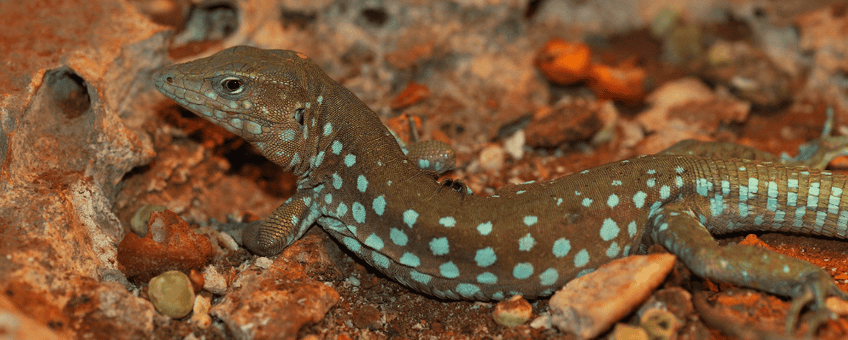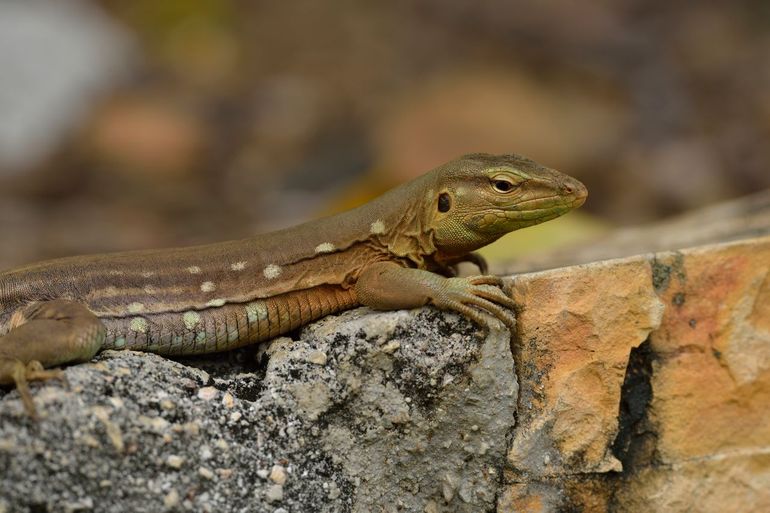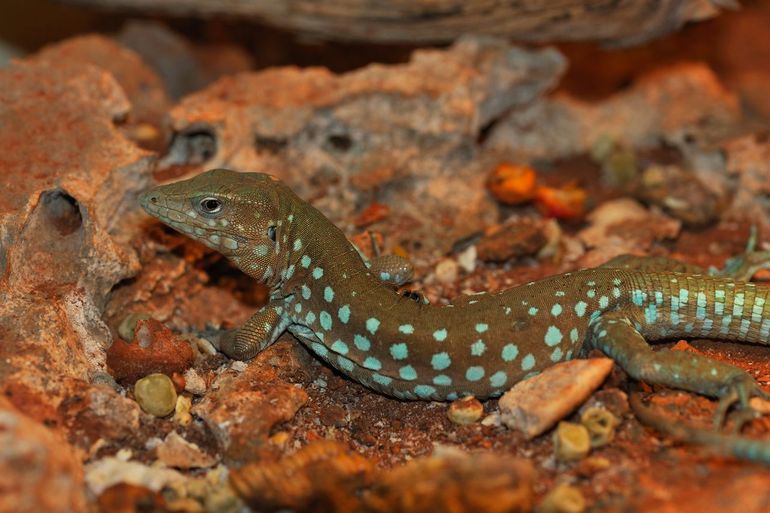
The social lives of whiptail lizards
Dutch Caribbean Nature Alliance (DCNA)Recent observations of these reptiles have shed light on their complex social behaviors, including their use of arm-waving and other displays in interactions with other lizards or even humans. These behaviors range from displays intended to ward off potential predators, to intricate social signals used during male-to-male challenges and courtship rituals.
Curaçao Whiptail arch
One notable discovery was the observation of a juvenile Curaçao Whiptail performing a unique display not previously documented within these species. This behavior is usually seen between two males preparing to challenge each other. The male aggressor will arch their back and shoulders with a response from the challenger involving bobbing their head up and down while slowly moving forward. These physical displays suggest that their social interactions are more complex than previously thought.

Aruba Whiptail's shadow dance
In a striking demonstration of adaptability, the Aruba Whiptail has developed a unique behavior to avoid detection by predators. Instead of seeking physical concealment, these lizards use the shadows cast by objects as a form of camouflage. Observations revealed that these lizards, when approached by humans, would retreat into the shadow of a fence, effectively reducing their visibility without the need for physical cover. This behavior, observed in both adult males and females, highlights the lizard's innovative use of their environment to enhance survival.

Implications for conservation
The findings from these studies are not just of academic interest, they have significant implications for conservation efforts in the Dutch Caribbean. Understanding the behaviors and survival strategies of these endemic species is crucial for developing effective conservation strategies. These findings highlight the complexity of animal behaviors and underscore the importance of continued research and conservation efforts. As we learn more about these species, we not only deepen our understanding of the natural world but also reinforce our commitment to preserving the rich biodiversity of the Dutch Caribbean islands.
Text: Dutch Caribbean Nature Alliance (DCNA)
Photos: Christian König
